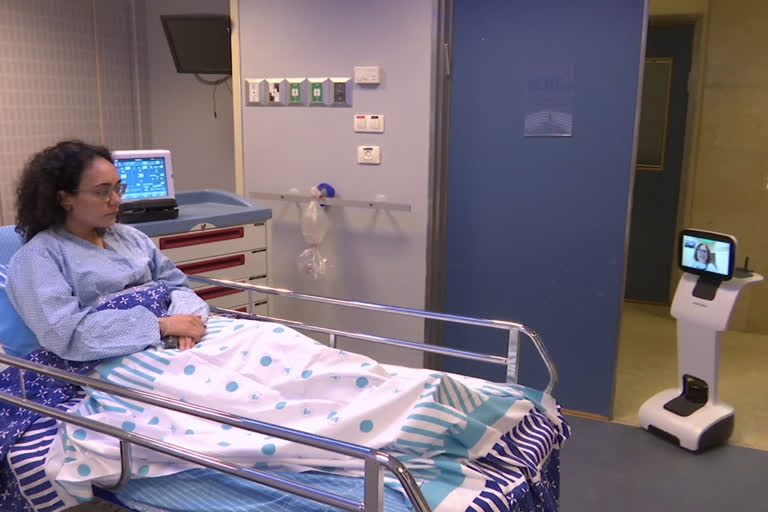Ramat Gan: An Israeli hospital has unveiled a high-tech simulation room, where it plans to test new, cutting-edge technology, before introducing it onto its wards.
Sheba Medical Center hopes its 'smart room' will help the hospital make better choices about what new technology it adopts in the future.
This could be the hospital room of the future - robots, remote diagnosis, and lots of new technology. But for now, this room just serves as a simulation.
Doctors, working with other specialists and developers at Sheba Medical Center, are testing out new technology on mock patients and mannequins, before they're introduced at the hospital for real.
"We know that the adoption of new technology is critical. It's not just about having the right technology, but also how can you adapt it to the real scenario life? And this is what we're doing in this room," says chief innovation officer Eyal Zimlichman.
Read | Weather better for historic SpaceX launch of NASA astronauts
While the idea for this 'smart room' existed well before the coronavirus outbreak, the challenges the pandemic poses to healthcare has driven the need for more technology, particularly remote care to protect health workers.
The simulation room is for now focusing on COVID-19-related technologies.
Doctors and developers are currently testing a robot that enables remote communication between doctor and patient.
Read | Twitter is 'interfering' in US election, 'stifling' free speech, alleges Trump
It means patients can perform simple self-checkups, like checking for fever or checking their heart and lungs.
This technology and others - eleven in total, so far - are intended to help bring the hospital well into the 21st century.
"We're trying to envision and to predict how would healthcare be provided ten years down the road," says Amitai Ziv, who heads the Israel Center for Medical Simulation at the hospital.
"We have lots of directions and trends that we can already identify, we've been identifying them for quite some time and we don't want to be passive responders to new technologies, but rather lead those technologies to where they need to be to serve us, and most importantly, patients."
Another technology being tested is an augmented reality platform that trains doctors and hospital workers to operate a ventilator.
Health professionals wear a headset that uses AR to display a tutorial on top of their real-world view.
It's intended to increase the number of health workers able to operate life-saving devices. Ventilators have proved crucial in assisting some patients with COVID-19, but not all medical professionals are trained to use them.
"He or she would see exactly what I see from the lens and he or she could guide me directly to the right knob and the right parameter and teach me from far away," explains Ziv.
The hospital hopes that by having one central place to test new technology, it will be able to provide better healthcare in the future.
(AP)



